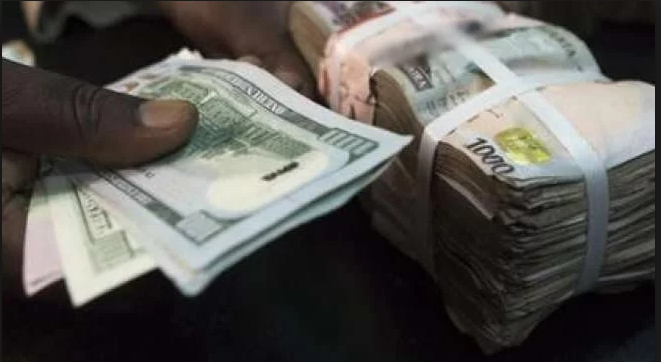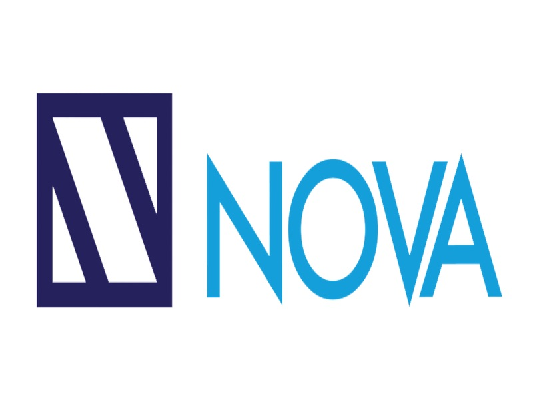External reserve records $4bn gain, highest in 12 months

…as Naira rebounds against dollar, other major currencies
The nation’s external reserve has recorded a total $4 billion increase in 12 months, data collected from the Central Bank of Nigeria (CBN) website has shown.
This is even as the local currency, Naira, over the weekend closed at an appreciable rate of 386 to a dollar, stronger than 388 traded in the previous day at the parallel market.
The Daily Times checks observed that the reserve as at May 4, 2017, stood at $30.98, an approximate figure of $31 billion, compared to the corresponding year balance of $26.94, indicating a whopping growth of about $4 billion.
Although the latest reserves balance of $30.911 billion on Thursday May 11, 2017 represents a decline of $11.3 million against the figure of $30.922 billion a day before and a drop of $77.2 million to the balance of $30.98
billion it stood seven days earlier.
Also, at the end of 2016, the reserve declined to $25.8 billion but significantly rose to $28.1 billion by the end of January, 2017, indicating an increase of $2.3 billion.
Despite series of interventions and policy reforms in the Nigerian economy, specifically in the foreign exchange segment, the nation’s external reserves finally touched $31 billion, after gradual but persistent add-ons in eight weeks, representing highest in the last 12 months.
Since late February 2017, when the regulator renewed its reform of the sector, which currently has significantly revived the fortunes of the local currency, an estimated $4.4 billion has been put into several interventions, although not all has matured.
The Daily Times, however, notes that the nation’s external reserves appreciated by $27.8 million in four-days, as data collected from the apex bank website showed that there were increase in March amid increase in global oil prices in combination with the inflows from the International Money Transfer Operations (IMTOs).
Precisely, from March 28, the external reserve has been on the upward trend rising from $30.3 billion to $30.983 billion as at 4 of May, 2017. But the apex bank data showed that the rising trend was halted on Monday, May 8, 2017, when the reserve dropped to $30.933 billion, translating to $50 million decline.
According to the CBN, the nation’s external reserves as at March 31, 2017 stood at $30.29 billion, representing an increase of $27.8 billion, compared to $30.33 billion at the end of April 5, 2017.
Reacting, Chief Executive Officer, Economic Associates, Ayo Teriba, explained that “Despite the constraints on policy responses in 2016, cycles are now on the upturn in 2017, and the recession, inflation and weakness of the Naira are most likely to fizzle out.
“Oil price has risen from a low of $28 per barrel in the first quarter of 2016 to $55 in the first quarter of 2017, external reserves have risen steadily for six months to climb above $30 billion by March 2017, after reaching a low of $23.9 billion in October 2016.
“The oil price is likely to average about $55 in 2017. Government also expects oil production to be stable at 2.2 million barrels per day in 2017 as expressed in the federal budget proposals. The outlook for growth, inflation and exchange rate is brightened by this.
“The parallel market rate is beginning to appreciate in response to improvements in the central bank’s capacity to supply foreign exchange, with the parallel market rate rising to N380/$ in March 2015, after touching an all-time low of N520/$ the month before.
“If the oil price holds up at the current level and external reserves continue to grow, the parallel market rate will continue to appreciate until it converges with the inter-bank rate.
“Both rates started to diverge after external reserves dropped below US$36 billion in November 2014, forcing the CBN to close its Wholesale Dutch Auction (WDAS) window and devalued the interbank rate from N150/$ to N197/$ by
February 2015, only for the parallel market premium to widen steadily as falling reserves signalled weakness of the CBN to meet demand. CBN was forced to devalue the interbank rate again in June 2016, but premium continued to widen to signal unease.
“Between the two devaluations of the inter-bank rate, CBN introduced a lot of obstructionist policies to suppress demand, like forcing recipients of inward remittances to receive their funds in Naira at the controlled inter-bank exchange rate, restricting foreign currency transactions on accounts held with Nigerian banks, and publishing an infamous list of 41 import items that would not be funded by CBN. Such demand restrictions amplified the cyclical downswing and triggered the recession.
“A better response would have been for the CBN to look beyond the current account and boost foreign exchange inflows on the capital account to counter the downswing. The problem was the sharp drop in foreign exchange supply that a fall in oil price from US$110 per barrel in 2014, to $53 in 2015, and $28 in the first quarter of 2016 implied. Boosting supply would have been a better way to stabilise the market than restricting demand to amplify the downswing, or attempting to float the exchange rate in the face of the supply shortfall as the CBN did.
“Now that the external reserves are rising, the central bank is beginning to drop some of its administrative restrictions and is likely to continue to do so once reserves keep rising, until we get back to a threshold of $36 billion in external reserves when a stable supply can be assured, and the rates in the markets will converge.
“The CBN can be trusted to drop it list of prohibited items as we approach that point. Seeing external reserves above the $36 billion threshold could even mean a reopening of the WDAS window of the CBN.
The CBN should not be tossed up and down by cyclical swings,” he added.
Meanwhile, the local currency in circulation dropped by 0.4 per cent in April to N1.976 billion from N1.984 billion in March 2017.
The apex bank regulator continued to mop-up excess liquidity from the banking system that has resulted in drop in inflation rate.
With the N1.976 billion in circulation, it represents the lowest so far in 2017 from N1.99 trillion it was in January.
FBNQuest Research in its report said the increase brought the sixth successive monthly rise in official reserves, to $31 billion.
According to FBNQuest Research report, the increase since end-October now amounts to $7 billion and restores the total to a level last seen in August 2015.
“Among the reasons for the welcome recovery, we can point to a disbursement of $600 million by the African Development Bank in November and more recent Eurobond sales of $1.5billion.
“There has also been a significant recovery in oil production over the period. With less certainty we can speculate about improved foreign exchange management and possible swap transactions.
“The positive surprise has been that the upward trend in reserves has continued, albeit more slowly, since the CBN stepped up its foreign exchange interventions (sales) in earnest at the beginning of March.”
The intervention of the CBN in the foreign exchange market increased to $4.6 billion, with foreign exchange operators apprehensive over the new foreign exchange window for investors and exporters.
FBNQuest Research added that the steady accumulation in foreign reserves make it less, not more, likely to adopt the foreign exchange reforms sought by the market.
“There is no sign that the CBN plans to slow its sales, which for wholesale transactions alone are now close to $3billion: rather, it launched its latest window (for investors and exporters) only last month.
“The macroeconomic damage from the latest period of oil price weakness, which is now approaching three years, could have been manageable if a fiscal buffer against external shocks had been functioning.
“Legislation passed in 2011 created such a buffer, Nigeria’s own ring-fenced sovereign wealth fund, but the opposition of state governors has prevented its effective operation. The accumulation from 2011 through to the start of the oil price slide in August 2014 would have been substantial,” the Lagos based Research Company added.








